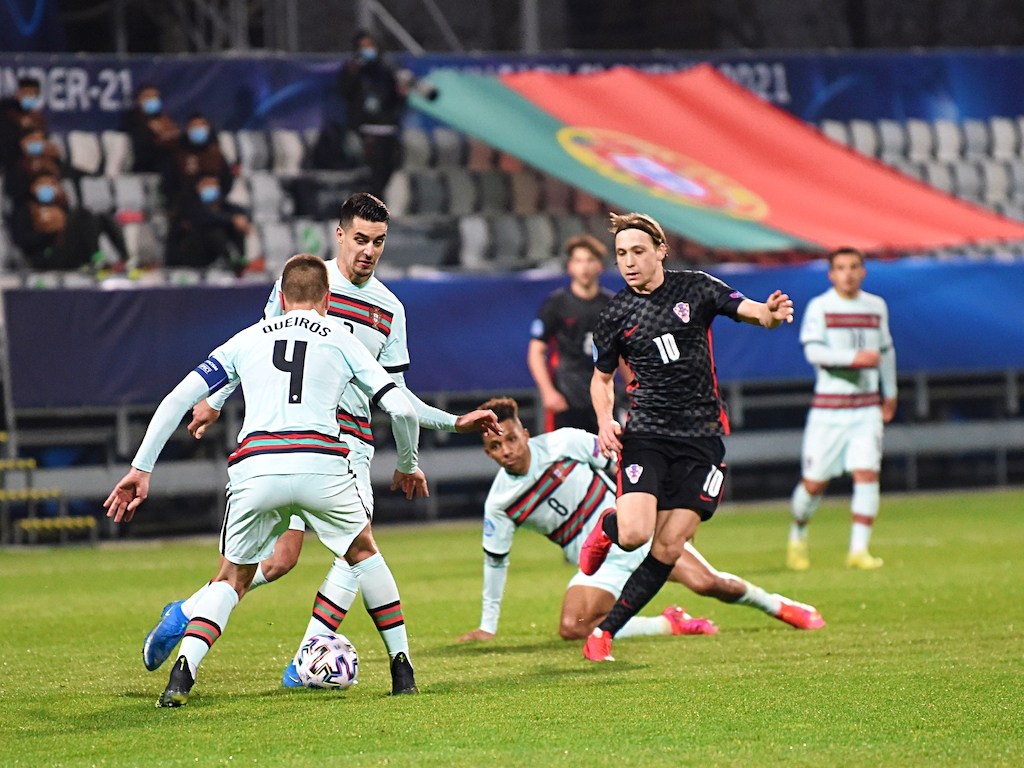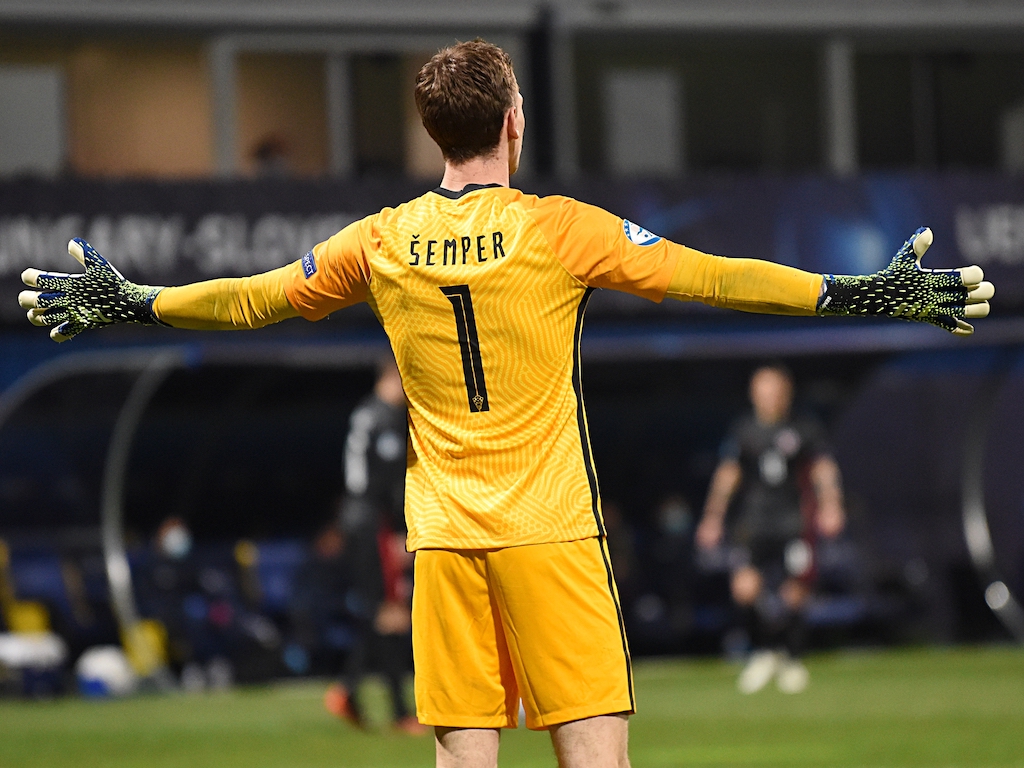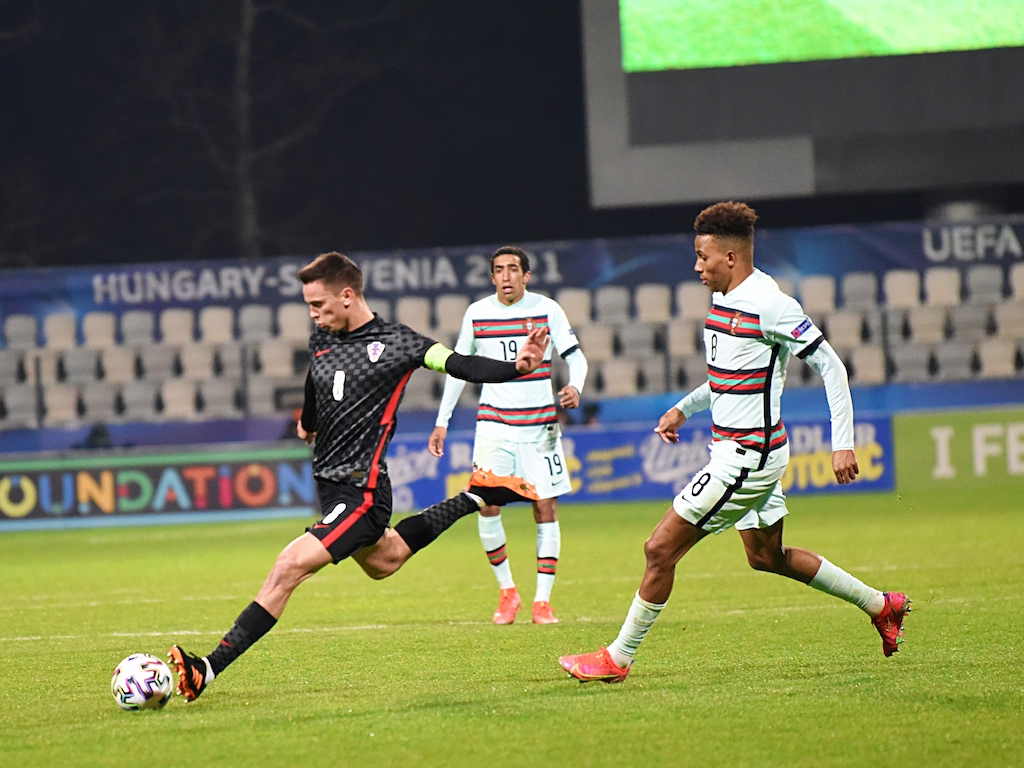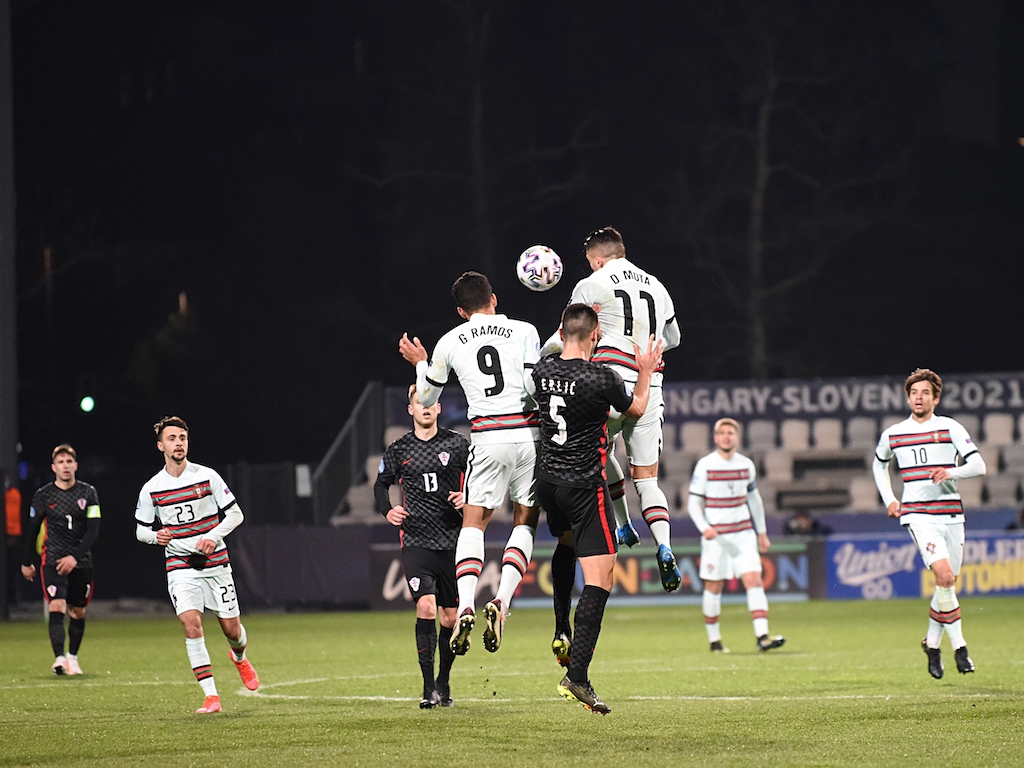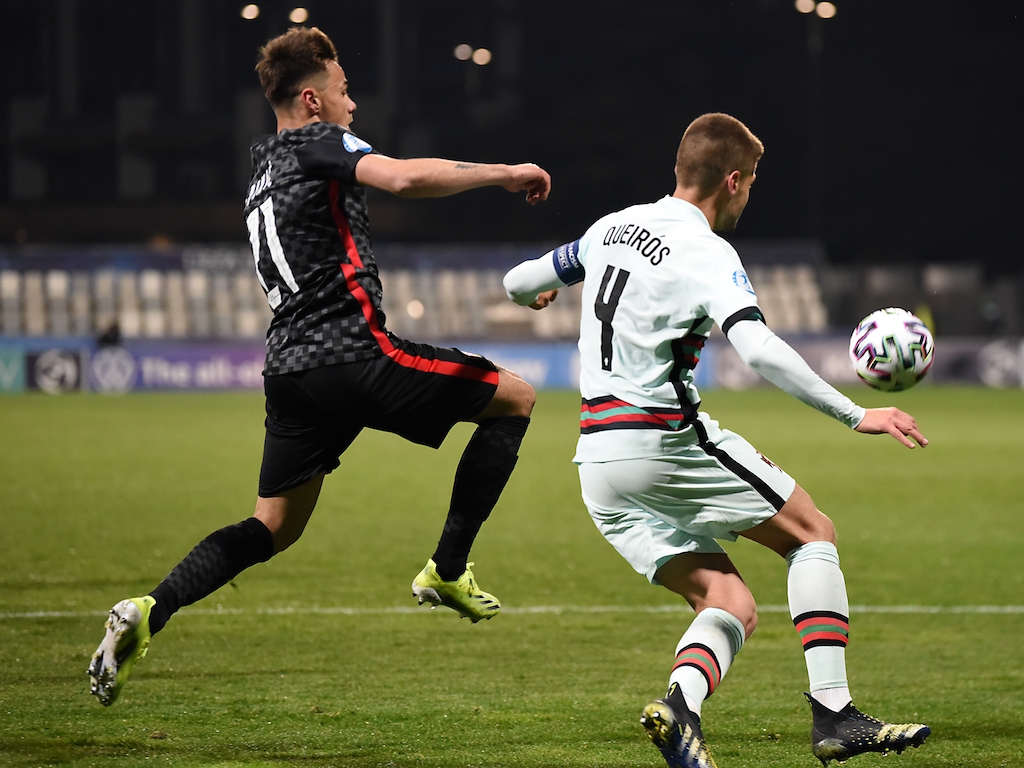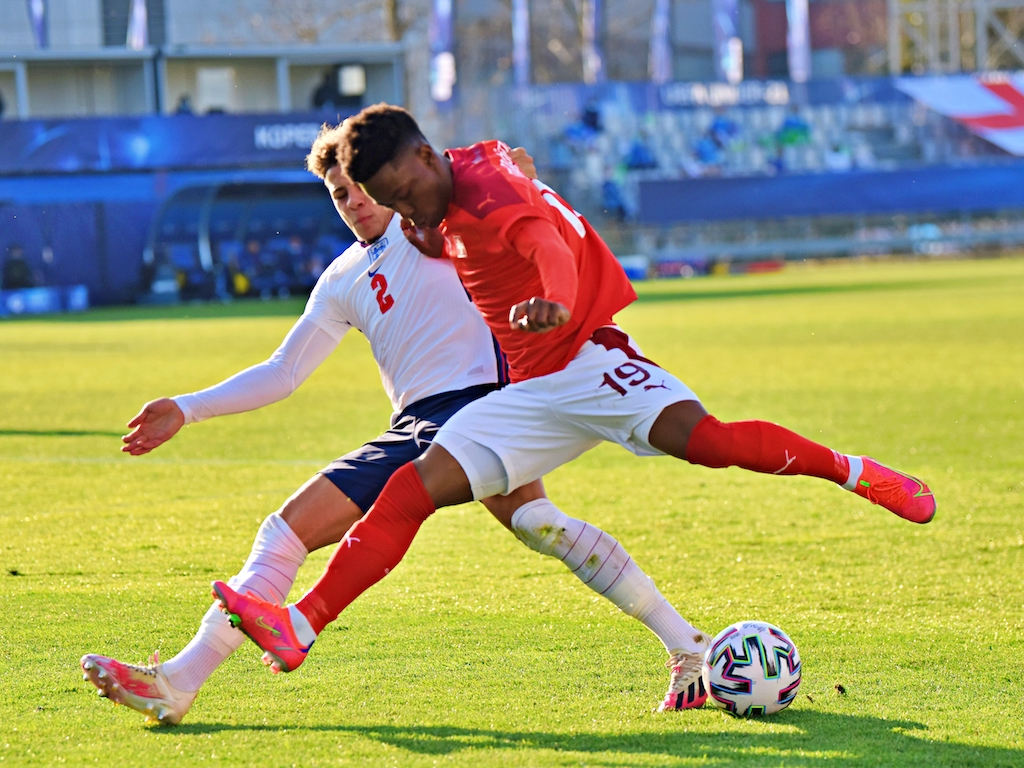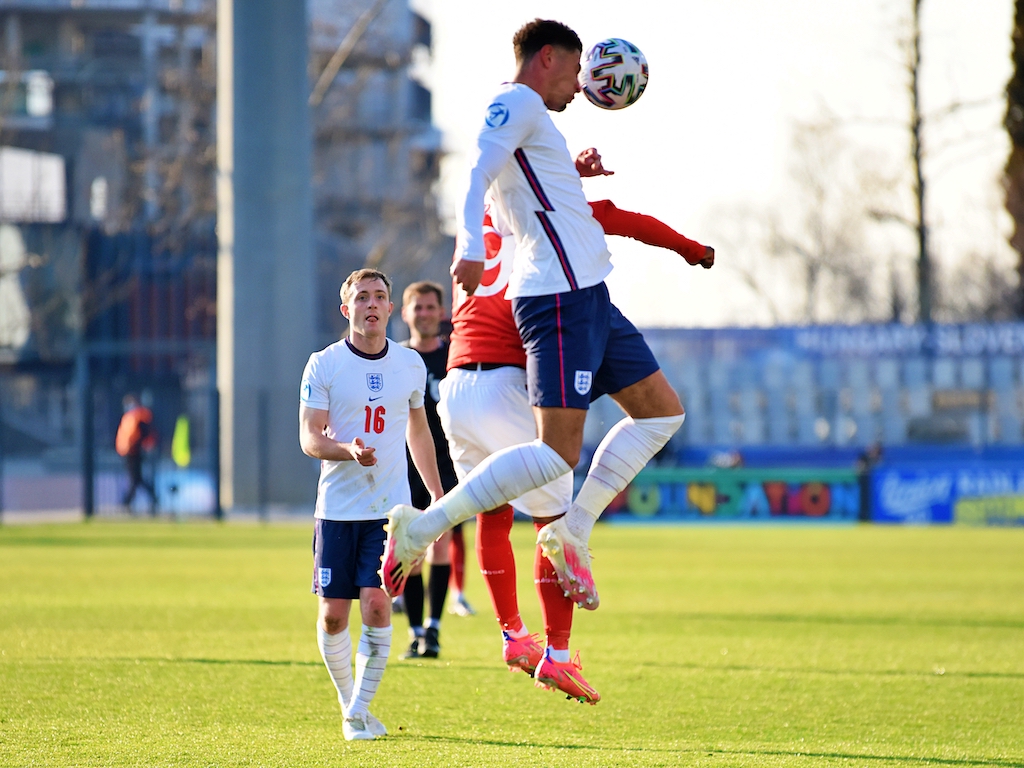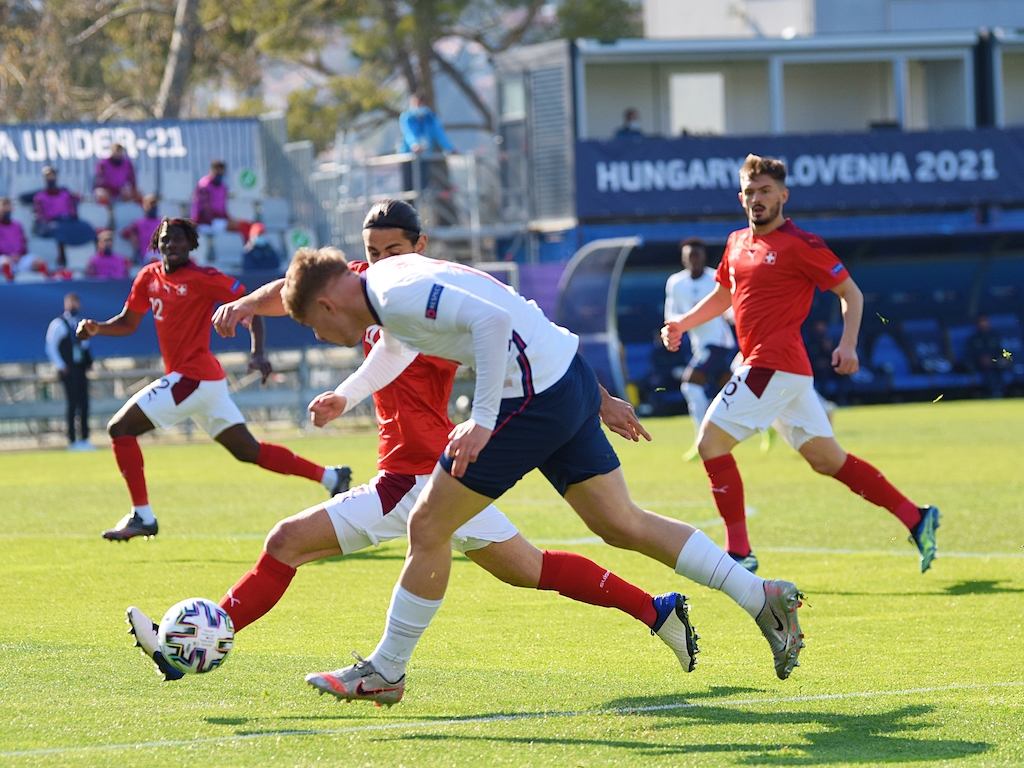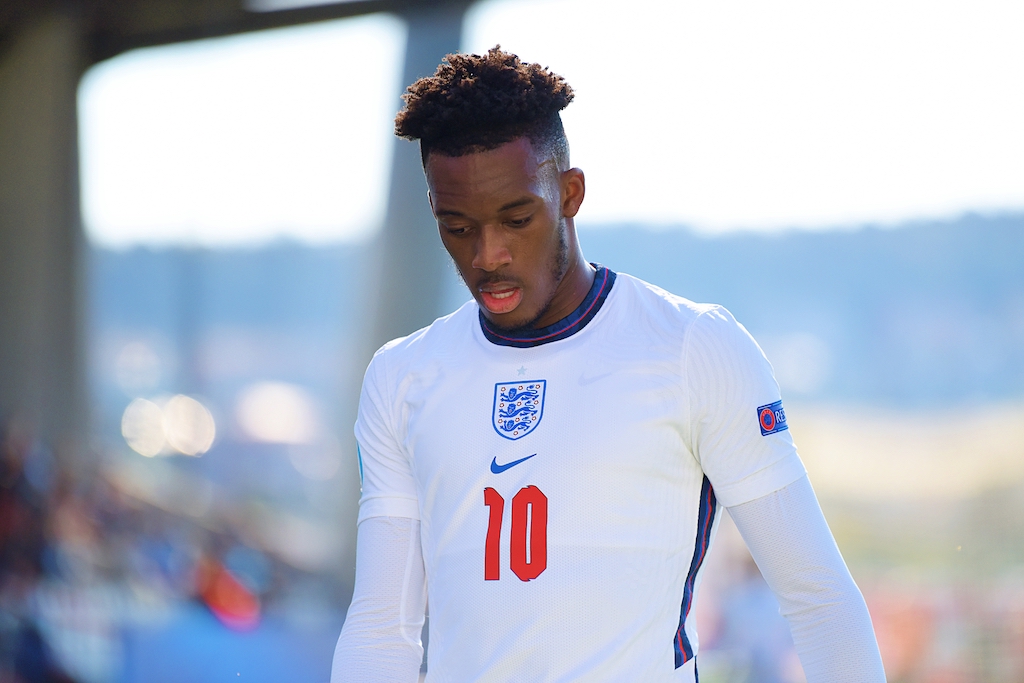Janša: Slovenia and Croatia Making Joint Efforts to Expand Space of Freedom
ZAGREB, 30 May, 2021 - Prime Minister Janez Janša said in Zagreb on Saturday that Slovenia and Croatia were two countries with similar histories and that nowadays "they are fighting together for the expansion of Europe and for all its parts to be free."
On Saturday evening, Janša arrived in Zagreb to attend a special concert in the Croatian National Theatre (HNK) on the occasion of Croatia's Statehood Day, observed on 30 May.
In reference to the early 1990s when his country and Croatia gained independence, Janša said that "those were the times of huge risks and courage both for Slovenia and Croatia."
"I can remember the steps we made to get rid of the yoke of the Yugoslav Communist system. Today, Slovenia and Croatia are members of the European Union and NATO, and we are together fighting for the expansion of Europe and for all its parts to be free," said Janša, who was welcomed by Croatian Prime Minister Andrej Plenković.
Janša went on to say that the two countries were now able to help other countries and "want to expand the space of freedom."
He invited his Croatian counterpart to ceremonies in Ljubljana on the occasion of Slovenia's Statehood Day on 25 June. Six days after that holiday, Slovenia will take over the rotating presidency of the Council of the EU, and this will be the first time for Ljubljana to be the EU chair.
Janša congratulated PM Plenković on Croatia's successful chairmanship of the Council of the EU in the first half of 2020 against a backdrop of "very demanding circumstances marked by the (COVID-19) pandemic."
Plenković, who described Janša as a friend and good neighbour of Croatia, said that he was confident that during the Slovenian chairmanship in the second half of this year, Croatia's Schengen and euro area membership bid would be strongly supported by Ljubljana.
He noted that the third remaining objective in the foreign affairs was Croatia's admission to Organisation for Economic Co-operation and Development (OECD).
As soon as we accomplish those three goals, we can say that we have fulfilled our tasks, having in mind the size of our country, Plenković said.
He pledged the further strengthening of Croatia's institutions, democracy and economy in the fourth decade of the country's independence.
We are committed to strengthening the social inclusivity and to the stronger positioning in the EU and NATO, he said adding also that Croatia was dedicated to green and digital transition.
For more about politics in Croatia, follow TCN's dedicated page.
For more news about Croatia, CLICK HERE.
Slovenia, Croatia, Italy Sign Statement on Protection of Adriatic
ZAGREB, 21 April, 2021 - The foreign ministers of Slovenia, Croatia and Italy signed in Brdo Pri Kranju, Slovenia on Wednesday a joint statement on the protection of the northern Adriatic, after plenary talks on joint cooperation in that area.
Speaking to the press after the signing, Anže Logar of Slovenia said that he, Gordan Grlić Radman of Croatia and Luigi di Maio of Italy endorsed conclusions on strengthening the three countries' cooperation in the protection of the Adriatic, which he said was the basic framework for strengthening cooperation in areas of common interest.
Last year Croatia and Italy announced the proclamation of exclusive economic zones in the Adriatic, including Slovenia in consultations on the matter. Slovenia, which under international law does not have the right to do the same, assessed that as a positive move by its two neighbours.
Early this February, the Croatian parliament proclaimed an exclusive economic zone in the Adriatic, giving Croatia additional rights in relation to the Ecological and Fisheries Protection Zone declared in 2003 to build artificial islands and exploit the sea, wind and currents in that zone in line with the UN Convention on the Law of the Sea.
At a meeting in Trieste on 19 December, the three ministers adopted a joint statement in which they share a vision of the sea as a bridge uniting all the peoples in this area and a source of progress for all. They were agreed that the Adriatic, as a closed sea with intensive traffic and a vulnerable eco-system, needs an integrated approach to environmental protection and sustainable development.
For more about ecology in Croatia, follow TCN's dedicated page
Friends of Croatia: New TCN Series On All Things Diplomatic
April 20, 2021 - Check out the newest TCN series "Friends of Croatia", dealing with all things diplomatic, by TCN reporter Ivor Kruljac
December 22, 1990, the Croatian parliament known as Sabor brought its first independent constitution, known as „The Christmas Constitution“. After that, the same parliament officially declared Croatia as an independent country and no longer part of the Socialist Federal Republic of Yugoslavia on June 25, 1991. Then followed the Ex-Yu War known in Croatia as a Homeland War, which lasted until 1995.
While this war is one of the foundations of Croatian independence, noted by the modern constitution as well as on other grounds of historic events, the dedication of soldiers, tactics, weapons, force and combat skills weren't the only cards Croatia had to achieve its sovereignty. It was also the communication with the international community and international recognition. This allowed Croatian citizens to not end up in the trap of Transnistria, a sovereign state officially recognized as part of Moldova, where Moldova does not rule due to the army and force monopoly by the Transnistrian government, but whose passports have no benefit for its citizens and despite being a state, in official maps does not exist.
Iceland was the first sovereign country to recognize Croatia as a sovereign state on December 19, 1991, followed by Germany in whose recognition took effect on January 15, 1992. Slovenia technically did recognise Croatia first, the same as Croatia was the first to recognise Slovenia, but neither country had international recognition at the time, which is the reason Iceland counts first. Floored by Iceland and Germany, other countries started to recognize Croatia and the new-found Republic joined the UN on May 22, 1992. The international status was then additionally boosted with joining Nato on April 1, 2009, and the EU on July 1, 2013.
Today, Croatia has 176 diplomatic relations; and for TCN writers, reporting on diplomacy is nothing new. Diplomatic relations can be viewed, in layman terms, like friendships, and this is why this series is called „Friends of Croatia“. As stated by the E-International relations site, diplomacy has existed as long as the human race. It can be viewed in the first negotiations amongst individuals before graduating to the level we know today.
„Among the many functions of diplomacy, some include preventing war and violence and fortifying relations between two nations. Diplomacy is most importantly used to complete a specific agenda. Therefore without diplomacy, much of the world’s affairs would be abolished, international organizations would not exist, and above all, the world would be in a constant state of war. It is for diplomacy that certain countries can exist in harmony“, writes the E-International relations site.
And indeed, shutting down diplomatic relations is a final step before potential war escalation and the spread of violence. Even with certain diplomatic tensions, Croatia has with Slovenia around Piranski Bay, or with Serbia regarding uncleared questions from the Homeland War, the fact there are diplomatic relations both with Serbia and Slovenia ensures that these tensions can be solved by peace and not violence.
But what exactly are the details of Croatian diplomatic relations with other countries and international organizations? This is precisely what this series strives to bring by explaining the history of Croatian diplomatic relations by talking to diplomats, embassies, and representers of international communities, with an informative, unique approach to each specific relation. The series wants to inform of the ups and downs of Croatian international collaboration, how to make them better, what benefits are there in these relations for Croatia, and what benefits are there for other countries. Keep your eyes open for articles in these series with more details and interesting facts about diplomacy in general too.
If you are working in the embassy or in an international organization in Croatia, feel free to reach out to This email address is being protected from spambots. You need JavaScript enabled to view it..
To read more from the series "Friends of Croatia", follow TCN's dedicated page.
For more about politics in Croatia, follow TCN's dedicated page.
U-21 Euros: Croatia Falls to Portugal in Game 1 of Group D
March 25, 2021 - Croatia falls to Portugal in their first match of Group D at the U-21 Euros at Bonifika Stadium in Koper, Slovenia.
The Croatia U-21 national team opened the group stage of the European Championship in Slovenia against Portugal at 9 pm on Thursday evening. Croatia plays in Group D against Portugal, Switzerland, and England.
In the first game of Group D on Thursday, Switzerland shocked England, complicating the group even before Portugal and Croatia kicked off.
Lineups
Portugal: Costa - Correia, Queiros, Leite, Dalot - Fereirra, Florentino, Fernandes - Trinaco, Tomas, Pote
Croatia: Šemper - Šverko, Erlić, Vušković, Bradarić - Bistrović, Moro, Franjić - Majer, Kulenović, Ivanušec
Slobodan Kadic
Recap
90' The ref added 6 minutes
84' Ten minutes without a chance.
74' The game came to life, but Croatia has not yet managed to create an opportunity to get back in the match.
69' GOAL! Fabio Vieira scored just minutes after entering the game. He came in brilliantly from the back and received the ball with space, calmly beating Šemper.
Slobodan Kadic
68' Bišćan introduced Babec and Musa instead of Moro and Majer. He seems to be going for three points with two strikers.
61' Nothing exciting in the last six minutes apart from a series of lost balls on both sides.
55' Several counterattacks on both sides, but none ended in an opportunity to score.
49' Majer shot poorly from the edge of the penalty area and went far from the goal.
46' The second half has begun.
End of the first half.
43' Great attempt by Vitinha from about 25 meters from Croatia's goal, but Šemper was solid
41' Kulenović shoots from the edge of the penalty area, but Costa defended.
38' Gedson Fernandes found his way in front of Šemper, but shot from a tough angle and missed the goal frame.
Slobodan Kadic
34' Pote fired from the edge of the penalty area
32' Nikola Moro's shot was saved by the Portugal goalkeeper.
29' Portugal dominates the pitch. They've only had one chance so far, but are constantly pressing.
25' Great opportunity for Portugal! Queiros headed and hit the post.
24' Two chances for Portugal, but both times blocked by Croatian stopper
Slobodan Kadic
21' Portugal was more dangerous for a few minutes but without a good chance. The best chance was Majer's four minutes ago.
17' Lovro Majer shot from the edge of the box, but Costa was ready and defended nicely.
15' Croatia is trying to set itself high and press the backline of Portugal
12' There haven't been any notable opportunities yet
Slobodan Kadic
8' The game is a bit messy at the beginning, no team can keep possession for long, although it seems that Portugal is a bit more interested in the ball. Croatia will obviously not play for possession today.
4' There are no great opportunities at the opening of the match, but the game is quite open with a lot of sprints on both sides.
1' The match started.
Source: Index.hr
To read more about sport in Croatia, follow TCN's dedicated page.
U-21 Euros: Switzerland Shocks England in Croatia's Group
March 25, 2021 - Croatia's group at the U-21 Euros just became a lot more complicated after Switzerland beat England on Thursday.
Switzerland surprisingly celebrated against England 1:0 in the first match of Group D at the Under-21 European Championship, which is being played in Slovenia and Hungary.
England was a big favorite ahead of this match and a favorite to win the group, but Dan Ndoye's goal in the 77th minute was enough for a shocker in Koper.
Slobodan Kadic
The England side includes footballers like Emile Smith Rowe from Arsenal and Callum Hudson-Odoi from Chelsea, but that didn't help them much.
Slobodan Kadic
Slobodan Kadic
Before the championship, there was speculation that England would win the group, and Switzerland and Croatia would look for a way to surprise Portugal and go further. This result surely complicates everything.
Slobodan Kadic
To read more about sport in Croatia, follow TCN's dedicated page.
Croatian Flag in Flowers at U-21 Euros in Slovenia
March 25, 2021 - Koper is one of the host cities of the UEFA European U-21 Championship, which is being held this year in Slovenia and Hungary.
On the first day of the competition, and in front of the entrance to the Bonifika Stadium, the floral flags of the national teams of Group D competing were displayed: Portugal, Croatia, Switzerland, and England.
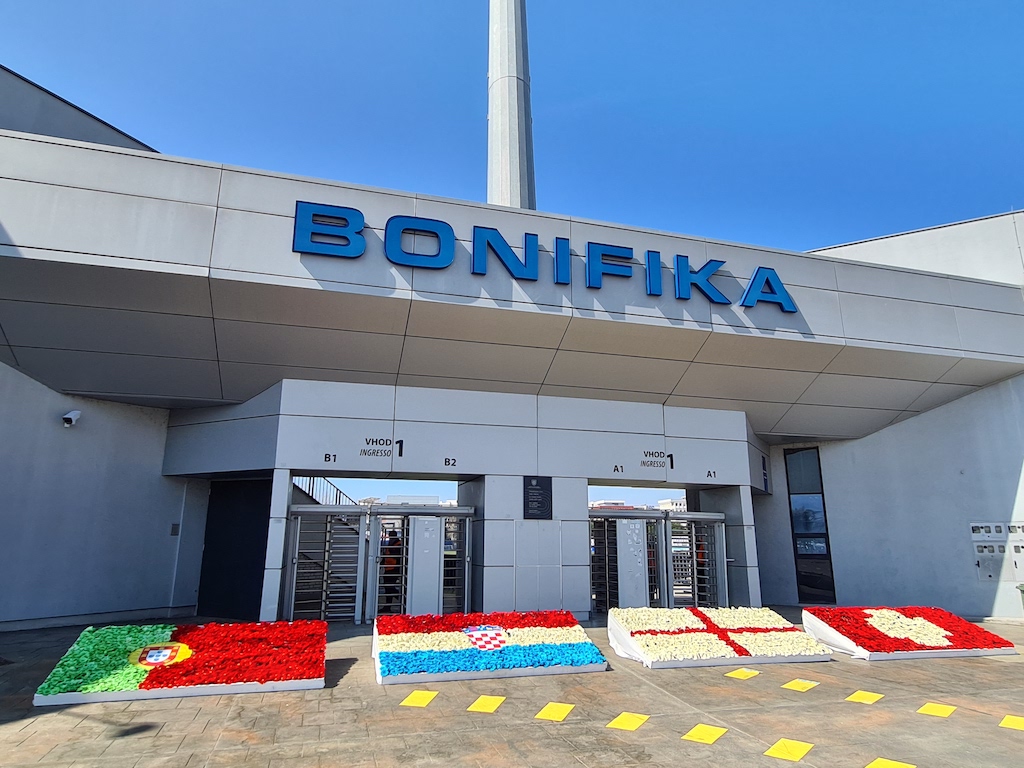
Slobodan Kadić
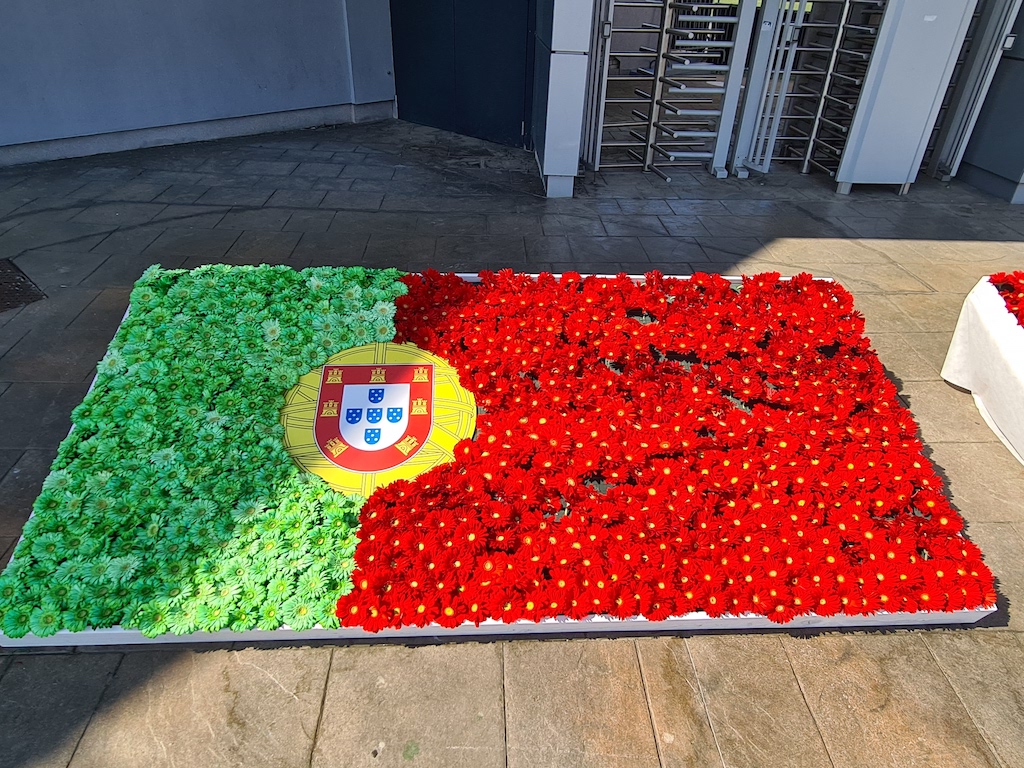
Slobodan Kadić
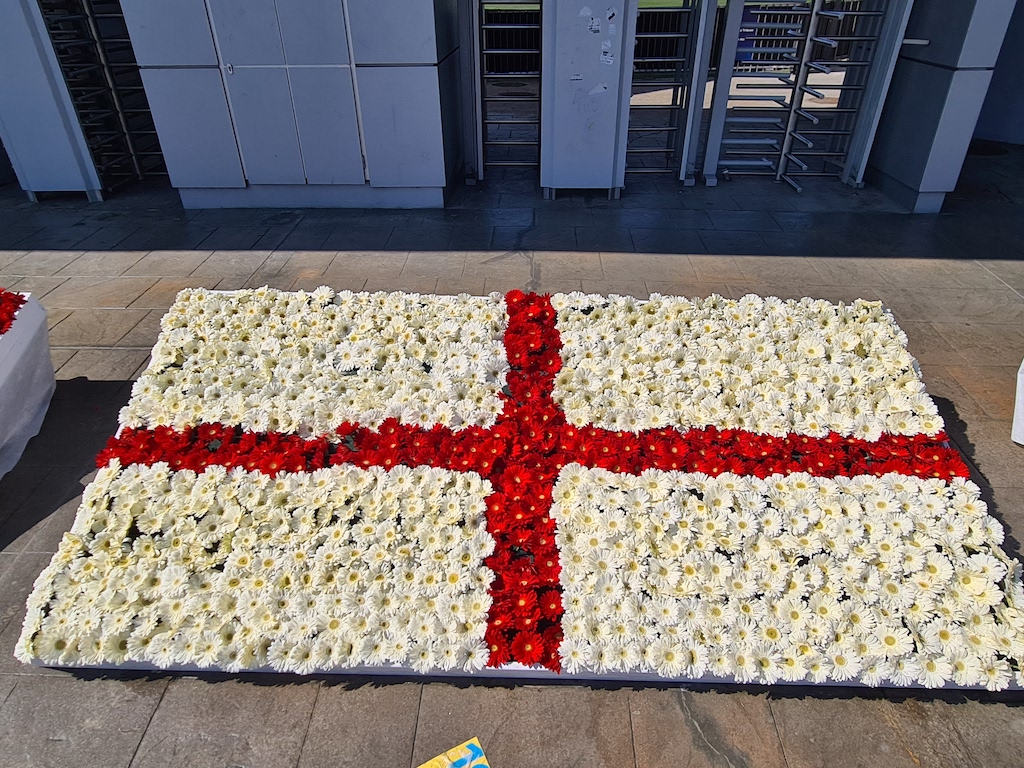
Slobodan Kadić
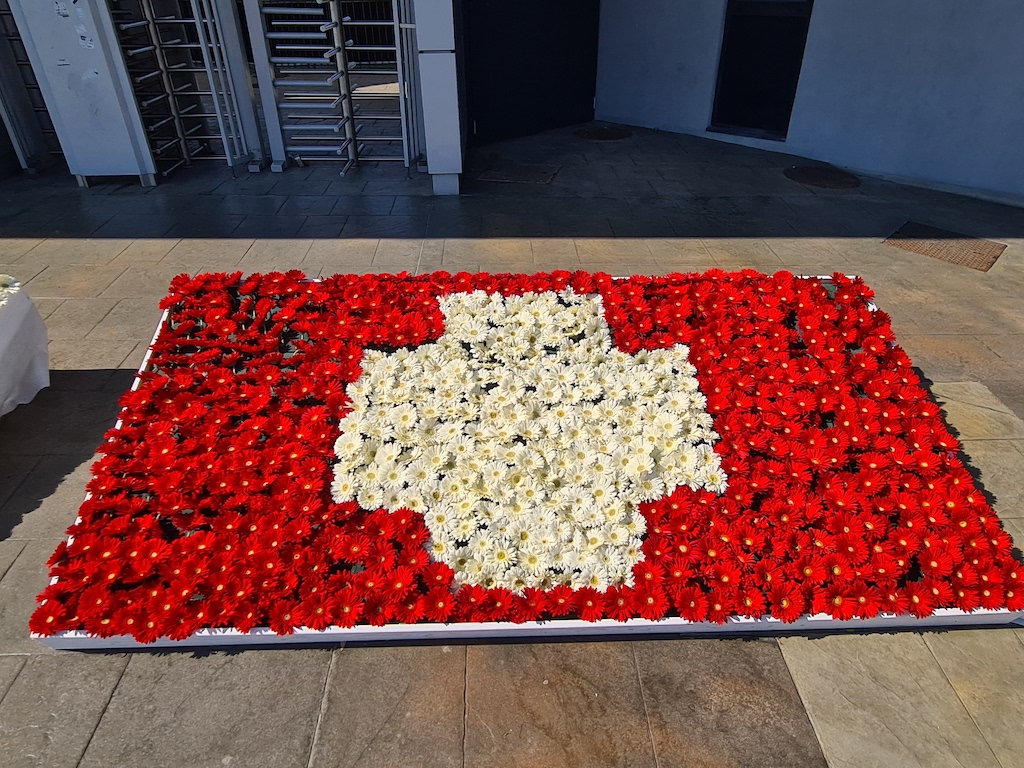
Slobodan Kadić
For the Croatian flag, they needed a little more creativity with the coat of arms, but the ingenuity of the hosts is to be commended.
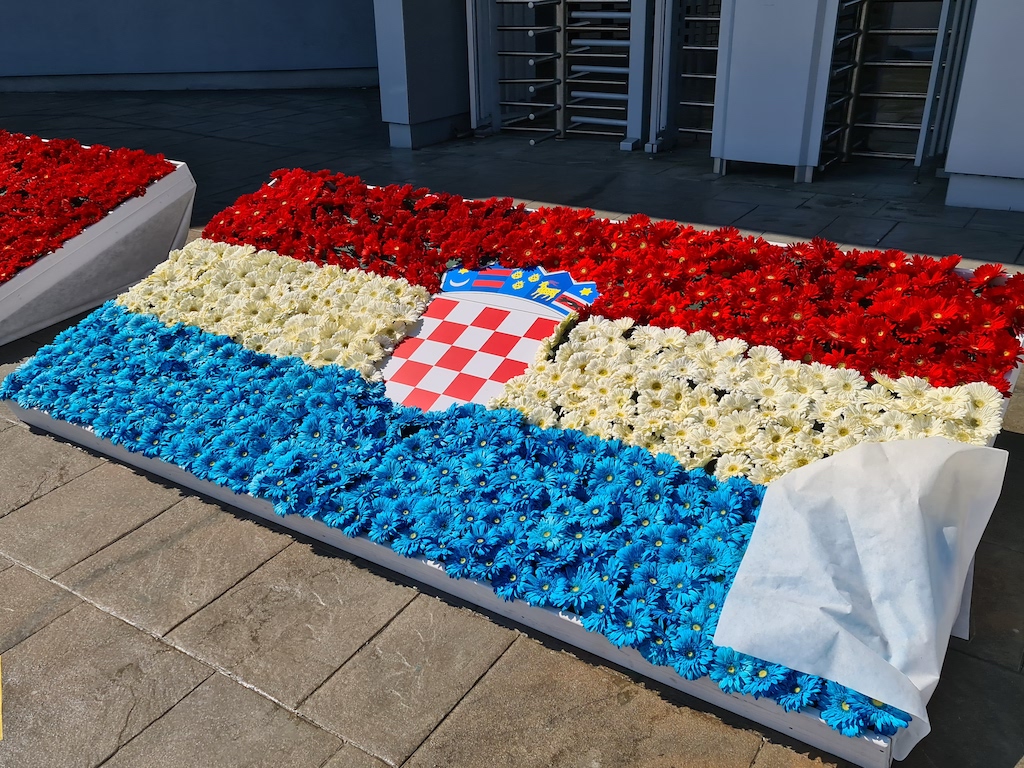
Slobodan Kadić
To read more about sport in Croatia, follow TCN's dedicated page.
Vatreni Spectacle: Six Croatia National Team Games in 8 Days!
March 24, 2021 - A Vatreni spectacle begins tonight, as the 2018 World Cup finalists kick off their 2022 World Cup qualifiers against Slovenia for the first of six Croatia national team games in 8 days. Recall, the Croatia U-21 side begins the group stage of the European Championship tomorrow, too!
The coronavirus pandemic, which erupted around this time last year, ultimately postponed the 2020 European Championships, which were to be played across Europe last summer.
According to the latest information, it should be played from June 11 to July 11, 2021, in 12 cities, in 12 different European countries. No official announcement has been made about the tournament yet.
The postponement of the Euros also moved the start of the 2022 World Cup qualifiers, which begin a bit earlier, or today for Croatia and Slovenia.
But that's not all.
The U-21 European Championship begins in Slovenia and Hungary, which kick off tomorrow for Croatia.
The Croatia A selection will open the qualifications for the 2022 World Cup on Wednesday against Slovenia in Ljubljana at 20:45. The famous Spaniard referee Antonio Mateu Lahoz will lead the match at Stožice stadium. Fans in Croatia can watch the broadcast on Nova TV from 8 pm, with a studio show.
The Slovenia national team is led by the well-known Matjaž Kek, once the successful coach of Rijeka. Of HNL players, Dinamo's Petar Stojanović and Osijek's Mario Jurčević, and Damjan Bohar are in their lineup.
Croatia will also play against Cyprus on March 27 and on March 30 against Malta in this microcycle. Both matches are played at Rujevica in Rijeka. All matches will be played without an audience. In addition to Croatia, Slovenia, Cyprus, and Malta, the group also includes Russia and Slovakia.
Croatia is the absolute favorite of the group. Ante Rebić and Bruno Petković will not be in the squad due to injuries, but Šime Vrsaljko is looking forward to returning. Recall, Vrsaljko is back in the national team after two and a half years and major injuries.
"We will definitely miss Petković; he was in good shape. With him, our game system is different, and we will have to change that a bit now," said coach Dalić.
However, despite the absence of Rebić and Petković, Dalić has Mislav Oršić, who is playing the best football of his life, and Kristijan Lovrić, who is not far behind.
"I have already said, Mislav deserved this round, and he will have minutes. But I have to wait to talk to the players because we haven’t been together for a long time and I don’t know the condition of each of them. Things are changing now, and he played 120 minutes against Tottenham and also played against Gorica. He can help us, and I have to be smart, wise, deploy strength and energy, so we don’t run out because it’s a hellish cycle," said Dalić.
In the European qualifiers, 55 national teams were divided into five groups with six teams each and five groups with five teams each. They will play two matches against each other in each group. Ten group winners will qualify directly for the World Cup, and ten runners-up and two Nations League teams will play additional qualifiers.
These 12 national teams will be divided into three groups, with four national teams vying for three more World Cup spots.
Schedule for Croatia A team
Slovenia - Croatia (Ljubljana, March 24, 8.45 pm Nova TV)
Croatia - Cyprus (Rijeka, March 27, 18.00 Nova TV)
Croatia - Malta (Rijeka, March 30, 8.45 pm Nova TV)
The Croatia U21 national football team traveled to Slovenia on Monday to play all three matches of the European Championship group stage.
Coach Igor Bišćan is convinced that the young Vatreni can play good games and fight for a place in the quarterfinals, regardless of its rivals - Portugal, Switzerland, and England.
"We have two days until the first game; we have to do the best we can. We have three games in a week; we will need to find a way to be ready for demanding matches. We believe in ourselves; we went through tough qualifications, which was positive for our character and mentality. In that positive atmosphere, I hope we can ensure getting out of the group," he says.
The Croatia U-21 national team will play all three matches in the group in Koper at the Bonifika Stadium, also without spectators. They play their first game on Thursday, March 25, against Portugal at 21:00, led by referee Bartosz Frankowski from Poland. Croatia's matches at the U-21 Euros will be broadcast by HTV 2.
Bišćan's side will face Switzerland on March 28 and England on March 31. England is certainly the favorite of the group.
"We are ready for something bigger. There are no weaker teams at the European Championship, but Croatia also has its qualities, and we want to reach the quarterfinals. We are a little tired, but the greatest pride is to play in the European Championship. We are not afraid of anyone; we are going to show who we are and what we are," said striker Sandro Kulenović.
The group stage of the U-21 European Championship will be held from March 24 to 31, 2021, and the winners and runners-up from each group will advance to the next stage, which will be played from May 31 to June 6, 2021.
Nine group winners and the five best second-placed teams, including Croatia and the hosts of the tournament, Hungary, and Slovenia, qualified for the final tournament. Sixteen national teams in the draw were divided into four groups of four national teams.
Schedule for Croatia U-21 side at the Euros in Slovenia and Hungary:
Portugal U-21 - Croatia U-21 (Koper, March 25, 9 pm HTV 2)
Croatia U-21 - Switzerland U-21 (Koper, March 28, 18.00 HTV 2)
Croatia U-21 - England U-21 (Koper, 31 March, 18.00 HTV 2)
Source: 24 Sata
To read more about sport in Croatia, follow TCN's dedicated page.
Kvarner Wines in Spotlight: Two "Sparkling Kvarner” Workshops held in Zagreb
March 22, 2021 - Hotel Dubrovnik announced the 5th Salon of Sparkling Wines with two sparkling Kvarner workshops on Friday, March 19.
Fiuman reports that two sparkling wine workshops were held in front of loyal visitors: Sparkling Kvarner and Natural Sparkling (Croatia & Slovenia).
At the first workshop, six wines produced by the pét-nat method (fr. pétillant naturel) were presented at a "blind" tasting. With the leader dr. Sc. Nina Levičnik, the founder of the Salon of Sparkling Wines network and a big fan of "natural" sparkling wines, the participants learned what the terms pét-nat, méthode ancestrale, and col fondo have in common and how they differ from other methods.
The presenter emphasized the importance of "terroir" in wine production with this ancestral method. The Croatian representatives were Tomac, Šember, Veralda, and the Slovenian Atimo, Keltis, and Štemberger.
At the second workshop, participants learned that Kvarner is the third Croatian wine region in terms of sparkling wine production. The recently founded the Kvarner Wine Association which today has as many as 10 sparkling wine producers who were presented at the workshop under the auspices of the Kvarner Tourist Board. Sparkling wines in Kvarner are produced from the original varieties - žlahtina, belica, mast - charmat, and the traditional method.
The moderator, Dr. sc. Žarko Stilin, secretary of the Kvarner Wine Association, one of the loudest promoters of original Kvarner wine varieties, organizer of several wine events, the most important of which is the International Wine and Gastronomic Festival WineRi, spoke about the interesting and special features of Kvarner sparkling wines.
Participants tasted 10 sparkling wines: Maličić winery Šipun, Porin Estate Winery Katunar, Valomet PZ Vrbnik, Gospoja PZ Gospoja, San Marino Wine houses Pavlomir, Soubze catering and Nada shop, Stara Bakarska Vodica PZ Dolčina Praputnjak, Biser žlahtine Ivan Katunar - Plovanić vina and Ružić - OPG Ružić.
Workshop leader dr. sc. Žarko Stilin proudly stated that sparkling wines in Kvarner have a long tradition, and with the Kvarner Wine Association, the promotion will be even more visible through many activities, education on table culture, organization of round tables, lectures, and scientific conferences to promote Kvarner with the support of Kvarner Tourist Board.
The wine workshops were an introduction to other sparkling events ahead of the 5th Salon of Sparkling Wine Zagreb, on June 11, 2021, on the Oleander terrace of the Hotel Esplanade. The date has been targeted to meet the summer and the upcoming tourist season when the consumption of sparkling wines will be more frequent than usual and any promotion is welcome.
For more about lifestyle in Croatia, follow TCN's dedicated page.
Slovenia Donates Nine Trucks Full of Timber to Earthquake-Devastated Petrinja
ZAGREB, 3 March, 2021 - The Slovenian association of wood processing companies, Sloles, has donated a large amount of timber for the reconstruction of roofs in the earthquake-devastated central Croatian town of Petrinja, and nine trucks set out for the Banovina region on Wednesday carrying 300 cubic metres of timber.
Croatia's Ambassador to Slovenia, Boris Grgić, Slovenian Minister of Agriculture and Forestry Jože Podgoršek and officials from Sloles attended the handover of this shipment at Novo Mesto.
Ambassador Grgić stressed the importance of the aid from Slovenia, which was among the first countries to respond after a 6.2 magnitude earthquake struck Banovina on 29 December, leaving seven people killed and extensive property damage. He said that the aid showed the importance of cooperation between the two countries and good neighbourly relations.
Minister Podgoršek said that this time too it turned out that neighbours were the first to come to aid and that by doing so Slovenians proved to be good neighbours, always ready to help.
Immediately after the disaster, the government of Prime Minister Janez Janša showed solidarity and sent housing containers, power generators, heaters and heated tents, and the Slovenian Red Cross initially donated €10,000.
Several times over the last two months, with the assistance of the Slovenian army and private hauliers, a number of mobile homes and housing containers have been brought to the earthquake-affected region, as well as many private donations of humanitarian aid, including those raised by Croats living in Slovenia.
Slovenian and Austrian Firefigthers Bring Aid for Earthquake Victims
ZAGREB, 10 January, 2021 - In a humanitarian campaign organised by the Breznicki Hum Municipality with the help of a Slovenian volunteer firefighters association, PGD Paloma Sladki Vrh, and Austrian OBR fire brigade, 24 trucks and vans on Saturday delivered aid for people in the quake-hit areas of Sisak, Petrinja and Glina.
The convoy entered Croatia on Saturday morning at the Dubrava Krizovljanska border crossing.
According to the press release, the convoy, accompanied by police, delivered large quantities of construction materials, construction tools, beams, planks and slats, generators and heaters, textiles, pillows, blankets, field beds, food, water and numerous other necessities for the many inhabitants of the quake-hit area.
Upon arrival at the storage terminal of a company called NIL-Z in Petrinja, they were welcomed by Petrinja Mayor Darinko Dumbovic, who thanked them for collecting and delivering valuable help.
The secretary of the Slovenian firefighters association, Valentina Oslovnik, its commander, Robert Oslovnik, and the commander of Austrian OBR fire brigade, Johannes Matzhold, expressed their satisfaction with participating in the campaign.
The head of Breznicki Hum Municipality, Zoran Hegedic, thanked the participants of the campaign and firefighter from Breznicki Hum, Slovenia and Austria.
Hegedic also thanked the Croatian customs for the excellent cooperation during the arrival of the convoy, Croatian police for accompanying them and all those who helped in any way.


